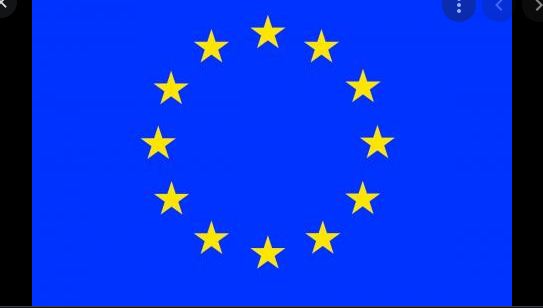ISLAMABAD, JUL 2 (DNA) – The European Union and its partners launched a programme that aims to promote the rule of law and enhance the criminal justice system in Pakistan, with a specific focus on the provinces of Khyber Pakhtunkhwa (KP) and Balochistan.
Jointly implemented by United Nations Development Programme (UNDP), United Nations Entity for Gender Equality and the Empowerment of Women (UN Women) and United Nations Office on Drugs and Crime (UNODC), the programme aims to support reform processes to ensure delivery of people-centered justice, enhance access to justice for all, particularly women and less privileged/marginalized groups; and improve service delivery of the security sector in line with constitutional safeguards and international standards. The project will provide technical assistance to legal reforms and the Rule of Law roadmaps in KP and Balochistan. Special focus will be set on access to justice through free legal aid and alternative dispute resolution, as well as legal literacy for citizens. On the institutional side, the project will assist in upgrading facilities and processes to enhance citizen friendly service delivery.
The launch event was held in a socially distanced setting, with many participants and key stakeholders attending virtually. Honourable Chief Justice of Pakistan Mr. Justice Gulzar Ahmed graced the occasion as Chief Guest, along with Her Excellency Ms. Androulla Kaminara, EU Ambassador to Pakistan and Representatives of the three UN Agencies.
EU Ambassador to Pakistan H.E. Ms. Androulla Kaminara thanked the UN agencies, provincial and federal government, and other important stakeholders for their support in strengthening the Rule of Law in Pakistan. “Inclusive access to justice for all is an important prerequisite for a peaceful and just society. Today’s programme builds on the long-term commitment of the EU to improving the Rule of Law and access to justice for all in Pakistan. The new program is part of the priorities of the EU-Pakistan Strategic Engagement Plan 2019 and financed under the EU Multi-Annual Indicative Program 2014-2020. Both strategic documents support the implementation of the Vision 2025 in the focal areas: rural development, education, good governance, human rights, and Rule of Law.”
Advisor to Chief Minister on Information, Government of Balochistan, Mr. Liaquat Ali Shahwani, thanked the EU and UN agencies for their continued support towards the justice system in Pakistan. “The Rule of Law programme is indeed an important milestone in advancing the provision of an enabling environment, peace, and security for the citizens of Balochistan and we are most grateful for this support.”
UNDP Resident Representative Mr. Knut Ostby said that the programme provides UNDP with the opportunity to work closely with UN WOMEN and UNODC, and other key government counterparts. “This will help us contribute to the effective functioning of the District Legal Empowerment Committees, women’s access to justice, in particular on domestic violence, child marriage and inheritance and property rights, and gender-responsiveness, among other important areas.”
UN Women Pakistan Country Representative Ms. Sharmeela Rassool stated that, “In Pakistan, women constitute of almost 50% of the entire population. Yet they are not represented proportionately in receiving or delivering of basic and critical services including effective service delivery in the justice sector. UN Women is committed to deepening our efforts to ensure inclusion of women in formal justice delivery mechanisms in Khyber Pakhtunkhwa and Balochistan to ensure their rights are safeguarded for promotion of a fair, efficient, gender-responsive and inclusive society.”
UNODC Pakistan Country Representative Mr. Jeremy Milsom hailed the programme as a milestone achievement and reiterated that, “UNODC is committed to working as a strategic partner to the Federal and provincial Government of Balochistan, implementing and strengthening transformative reforms across the chain of rule of law institutions towards delivery of a free and fair justice for all, including vulnerable and marginalized groups to support inclusive, just and citizen-friendly rule of law for the people.”=DNA
=========











